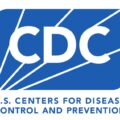The risk of Ebola to the general public in the UK remains very low.
The recent outbreak of the Ebola virus primarily affects 3 countries in West Africa: Guinea, Liberia and Sierra Leone. Around 7,500 cases and more than 3,500 deaths are suspected in West Africa, according to the World Health Organisation (3 October). This is the largest known outbreak of Ebola.
The risk of Ebola to the general public in the UK remains very low.
The recent outbreak of the Ebola virus primarily affects 3 countries in West Africa: Guinea, Liberia and Sierra Leone. Around 7,500 cases and more than 3,500 deaths are suspected in West Africa, according to the World Health Organisation (3 October). This is the largest known outbreak of Ebola.
Ebola can only be transmitted by direct contact with the blood or bodily fluids of an infected person or animal.
How the UK government is responding to Ebola
The government is closely monitoring the spread of the Ebola virus in West Africa, and is taking action at home and abroad.
Screening at ports
The Chief Medical Officer has recommended enhanced screening arrangements at the UK’s main ports of entry for people travelling from the affected regions – Liberia, Sierra Leone and Guinea. This will offer an additional level of protection to the UK.
To begin with enhanced screening will take place at London’s Heathrow and Gatwick airports and Eurostar terminals. It will involve involve assessing passengers’ recent travel history, who they have been in contact with and where they are going next, as well as a possible medical assessment. Medical assessments will be carried out by trained medical staff rather than Border Force staff. Passengers will also be given advice on what to do should they develop symptoms later.
Infection controls
UK hospitals have a proven record of dealing with imported infectious diseases. We have well developed and well tested NHS systems for managing unusual infectious diseases, supported by a wide range of experts.
These include experts at the Royal Free Infectious Disease Unit, the Liverpool School of Tropical Medicine and the London School of Hygiene and Tropical Medicine.
Advice for travellers
The government advises against all but essential travel to Liberia, Sierra Leone and Guinea except for those involved in the direct response to the Ebola outbreak.
Get the latest travel advice for Sierra Leone, Liberia and Guinea.
Advice for medics
Read clinical management advice and guidance.
The UK government is seeking medical professionals to join its emergency response in Sierra Leone. See “How you can help” below.
Response in Africa
The UK is working with the United Nations, the World Health Organisation and the wider international community to combat Ebola at the source in the African countries affected.
Britain is playing a leading role, particularly in Sierra Leone where it can best help to fight the crisis. The UK has committed a £125 million package of direct support to help contain, control, treat and ultimately defeat Ebola.
This is in addition to the UK’s significant support to international agencies like the World Bank and the UN’s Central Emergency Response Fund.
The UK’s direct support includes:
Medical help on the ground
Support for medical agencies in West Africa – such as the Red Cross and World Health Organisation – to provide direct care and expertise, and to train health workers.
Deployment of medical experts
Hundreds of NHS staff who have now volunteered to travel to west Africa and help those affected by Ebola.
Public Health England has already deployed 10 experts including epidemiologists to provide expert advice to the Sierra Leone Ministry of Health on managing the outbreak.
Treatment centres and beds
The construction of a treatment facility near Freetown, Sierra Leone, providing 12 beds for frontline health workers and 80 beds local people.
In total, the UK has committed to delivering 700 treatment beds in the coming months, helping up to nearly 8,800 patients over a 6 month period.
Local care units
A trial of 10 community care units to reach isolated Ebola cases quickly, with clinics providing swift, accurate diagnosis and appropriate care.
Military support
The sending of 750 troops to help build treatment centres, provide logistical support, engineering expertise and hands on help – as well as the deployment of Naval ship RFA Argus which can carry 3 helicopters to meet crucial transportation needs.
Logistical hub
The UK will set up a forward command and control logistical hub in Sierra Leone that will provide the backbone of infrastructure, commodities, training and management needed to scale up the response.
Emergency supplies
Practical items such as food aid, medical kit, clean blankets and chlorine for hygiene and sanitising.
Rapid release funding
A £5 million emergency fund for aid agencies working on the ground and in need of financial help to prevent disease and keep treatment centres open.
Support for health services
Financial support to strengthen the country’s own health systems in Sierra Leone and Liberia and to help with government coordination.
Improved public information
Help to increase the awareness and understanding of the disease within local and remote communities, including radio messaging programmes.
Scientific research
Emergency research to understand how Ebola spreads, and how to stop it.
Vaccine trials
Support to fast-track the human trials of an Ebola vaccine, that could immunise health workers and others to prevent the virus spreading further.
International diplomatic efforts
Sierra Leone and the UK has called on governments and international donors around the world to join up in a concerted effort to contain, control and ultimately defeat the Ebola outbreak.
Advice for aid workers
If you’re joining the emergency response, get the latest advice for humanitarian workers.
The UK government is seeking water, sanitation and hygiene experts and logisticians to join its emergency response in Sierra Leone. See “How you can help” below.
For more information see Article Source.




